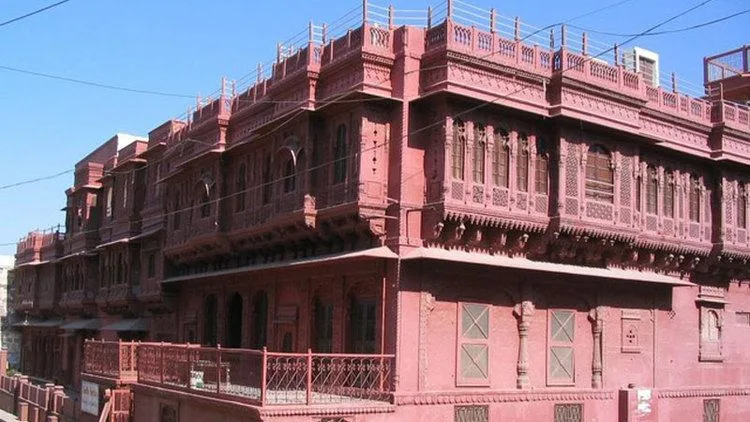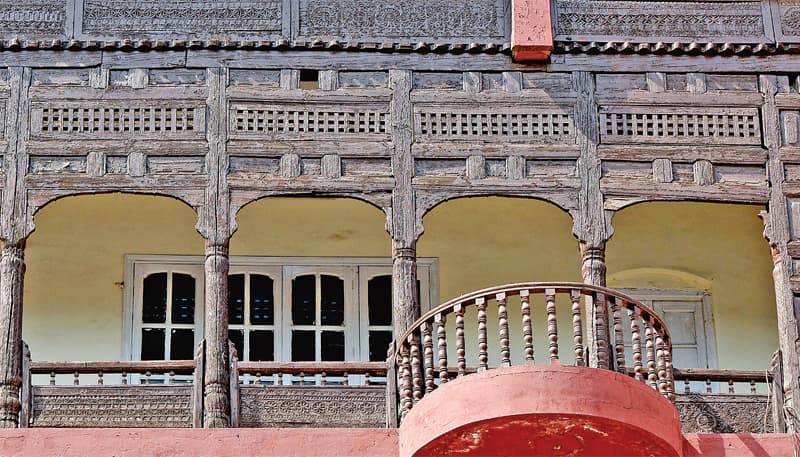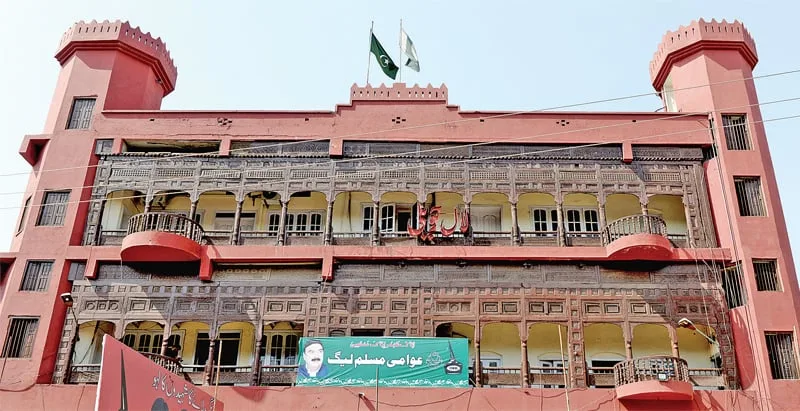Rawalpindi, Pakistan: She could convert to Hinduism and could hold property that was one of the best in the whole Rawalpindi division but she refused in the court and said she shared everything with her husband except religion and let it be as it was.
She was Budhan Bai; a dancer of Kashmiri origin whose beauty arrested a young Hindu Barrister Dhan Raj Sehgal who was a son of one of the richest families of the then Jhelum district in the 1920s.
UK-returned Dhans Raj was known for his colorful nights among the Seghal family and he used to travel to different cities to spend his nights with the beauties of his era. However, sometimes feelings of love ruined a normal life and it happened with Dhan Raj.
In the early 1920s, Barrister Sehgal had to travel from Rawalpindi to Sialkot to attend a traditional Hindu wedding in which a 20-year-old Muslim dancer, Budhan Bai, performed a classic dance.

He saw Mujra (dance) of Budhan Bai and fell in love with her. He proposed to her and she accepted his offer and became the Muslim wife of Dhan Raj. Saigal family rejected to accept the marriage unless she could convert to Hinduism which she refused. Dhans Raj left his parents and decided to live in Rawalpindi which was on a crossroad from Jhelum to Kashmir and was one of the most important grain markets (Galamandi) of northern Hindustan. Dhans Raj was a popular and successful lawyer as well as a businessman. Dhans Raj decided to construct a beautiful symbol of love for his Muslim wife and then Lal Haveli Rawalpindi emerged on the scene with a Hindu Temple at one side of the Havali and a Mosque at the other side of the structure—- A true symbol of an interfaith-love affair.

The Haveli was completed in 1927 and Budhan Bai who was also known as Buddhamai spent her life with Saigal who used to visit her every week till the partition took place. Dhans Raj had to leave for India along with his rich Saigal family from Jhelum but Budhan Bai refused to leave the Muslim State that was her dream and choice to live in. By that time, she was a mother of a son from Dhans Raj.
A number of lawyers suggested her for submitting an affidavit that she was converted to Hinduism after her marriage which she refused
In 1961 the Muslim Family Laws Ordinance was passed affirming that no law repugnant to Islamic injunctions would be enacted and that all existing laws would be considered and amended in light of this provision. The repugnancy provision has been retained and strengthened in subsequent Constitutions and amendments. Consequently, THE FAMILY COURTS ACT, of 1964 (Act XXXV of 1964) confirmed that a Muslim woman cannot be the wife of a non-Muslim person. After these legal developments, several people around Budhan Bai tried to start getting hold of Haveli from her because her husband was a Hindu. A number of lawyers suggested her for submitting an affidavit that she was converted to Hinduism after her marriage which she refused.
Budhan Bai was famous for her jewelry and property and her life was endangered in Rawalpindi because everybody thought she was sitting on a mine of money and jewelry. Her brother who used to live with her was murdered in an attempt by dacoits to enter the Havali. People believe that it was the mid-70s when his brother was killed.

This incident completely shattered Bai’s nerves. She was so disheartened that she quietly set off somewhere without telling anyone after attending the chehlum of her brother.
During her stay at the mansion, Bai used to smoke the Three Castles cigarettes sitting on the porch every day and outside the mansion, the children of the neighborhood would play marbles whom Bai would give empty cigarette cases.
Later on, when the phase of handing over the derelict Hindu properties to the Evacuee Trust Property Board (ETPB) started, the case of Sehgal Haveli was also brought to the magistrate’s court.
When Bai reached the court, the compassionate old magistrate said to her, “If you state that Sehgal had become a Muslim or you have become a Hindu, this entire mansion can legally be transferred in your name. Otherwise, it will have to be handed over to the ETPB.”
At this Bai spoke the historic sentence: “We shared everything except religion.” After her final statement, the magistrate said, “This society is very cruel, it will bother you a lot later.” Subsequently, he handed over the property to the ETPB and gave the two living rooms and the courtyard of the Haveli to Bai on humanitarian grounds.
